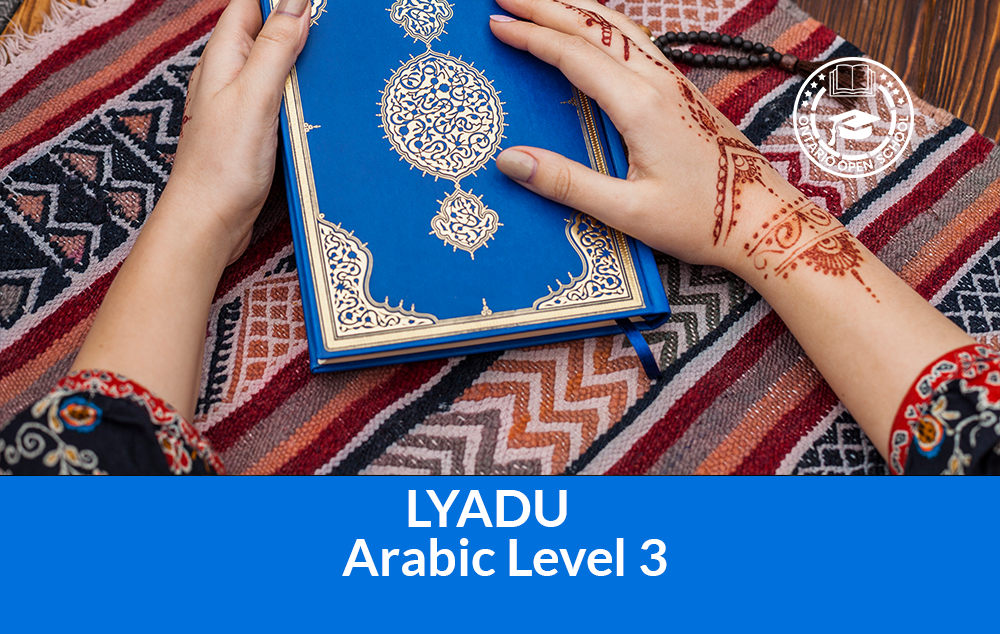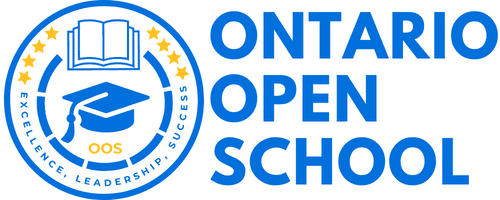- info@ontarioopenschool.com
- 647-494-4499
-
Unit 100 - 29 Gervais Drive, North York, ON.
M3C 1Y9
Copyright 2024 Ontario Open School Inc. All Rights Reserved.
This course provides extended opportunities for students to communicate and interact in the language of study in a variety of social and academic contexts. Students will re ne and enhance their listening, speaking, reading, and writing skills, as well as their creative and critical thinking skills, as they explore and respond to a variety of oral and written texts, including complex authentic and adapted texts. They will also broaden their understanding and appreciation of diverse communities where the language is spoken and develop skills necessary for lifelong language learning.
Unit Order | Unit Name | Suggested Time |
|---|---|---|
| Unit 1 | Holidays & Festivals In this unit, students will explore different aspects of the Arab holidays and festivals. In this context, they will learn new vocabulary words and phrases that are associated with each theme. Students will practice their listening, speaking, reading, and writing skills by exploring texts, images, and videos on these themes and will practice applying them to their own experiences. | 25 hours |
| Unit 2 | Arab History In this unit, students will explore key parts of Arab history. In this context, they will learn new vocabulary words and phrases that are associated with each topic. Students will practice their listening, speaking, reading, and writing skills by exploring texts, images, and videos on these themes and will practice applying them to their own experiences | 25 hours |
| Unit 3 | Travel Communicating In this unit, students will explore topics related to travelling. Students will study different topics including staying at hotels, transportation, eating at a 25 Hours restaurant, and more. Students will also expand their vocabulary and practice their Listening, Speaking, Reading, and Writing skills related to these topics | 25 hours |
| Unit 4 | Short Stories In this unit, students will examine a variety of short stories through a variety of media styles. Students will practice their Listening, Speaking, Reading, and Writing skills by exploring texts, images, and videos on these stories. Students will also be introduced to grammar | 27 hours |
| Final Evaluation 30% | Final review/ Culminating Project and Presentation Final Exam | 6 hours 2 hours |
| Total | 110 Hours |
A wide variety of instructional strategies are used to provide learning opportunities to accommodate a variety of learning styles, interests and ability levels. These strategies include, but are not limited to:
| Strategies marked with “X” are used in the course. | |||
| Direct Instruction (teacher-led) | X | Class Activity (teacher facilitation) | X |
| Direct Instruction (discussion possible) | X | Experiential learning (learn by doing) | X |
| Class Discussion (teacher facilitated) | X | Worksheets/Surveys | X |
| Small Group Discussion | X | Individual or Group Research | |
| Partner Discussion/Conferencing | X | Teacher modeling | X |
| 1:1 Conferencing Teacher & Student | X | Text-based modeling | |
| Teacher reading to class | X | Use of Computers / Internet | X |
| Silent individual reading | X | Use of video tape or audio materials | |
| Group based reading | X | Role Playing | |
| Independent Work (teacher facilitation) | X | Presentations | X |
| Group Work (teacher facilitation) | X | Guest Speaker / Interviews / Questions | |
| Brainstorming | X | Field Trip | |
Purpose
The primary purpose of assessment is to improve student learning. Assessment relates directly to the expectations for the course.
A variety of assessments for and as learning are conducted on a regular basis to allow ample opportunities for students to improve and ultimately demonstrate their full range of learning and for the teacher to gather information to provide feedback. Assessment tasks relate to the success criteria set out in lesson plans. Success criteria allow students to see what quality looks like.
Evaluation is the process of judging the quality of student work in relation to the achievement chart categories and criteria and assigning a percentage grade to represent that quality. Evaluation is based on gathering evidence of student achievement through:
Assessment for Learning – we provide feedback and coaching. Assessment FOR Learning is the process of seeking and interpreting evidence for the use of learners and their teachers to decide where the learners are in their learning, where they need to go, and how best to go there.
Assessment as Learning – we help students monitor progress, set goals, reflect on their learning
Assessment AS Learning is the process of the explicit fostering of students’ capacity over time to be their own best assessors, but teachers need to start by presenting and modeling external, structured opportunities for students to assess themselves.
Assessment of Learning – we use assessments to provide evaluative statements about student achievement. Assessment OF Learning is the assessment that becomes public and results in statements of symbols
(marks/grades/levels of achievement) about how well students are learning. It often contributes to pivotal decisions that will affect students’ future.
ASSESSMENT TOOLS
| Assessment for Learning | Assessment as Learning | Assessment of Learning | |||
| Quizzes | X | Journal/Reflections | X | Tests | X |
| Tests | X | Exit and Entrance Cards | Presentations | ||
| Presentations | X | KWL Chart | Journals | ||
| Journals | X | Self/Peer assessment | X | Essays | X |
| Essays | Logs | Models | |||
| Models | Projects | X | |||
| Projects | X | Demonstrations | |||
| Demonstrations | Conferencing | ||||
| Conferencing | X | Questioning | X | ||
| Questioning | Independent Study Assignment | X | |||
| Independent Study Assignment | Art Exhibits | ||||
| Art Exhibits | Researching | ||||
| Researching | Reading Aloud | ||||
| Reading Aloud | Problem Solving (process focused) | ||||
| Problem Solving (process focused) | X | Debates | |||
| Debates | Work Sheets | ||||
| Work Sheets | X | Role Playing | |||
| Role Playing | Direct Instruction | ||||
| Direct Instruction | X | ||||
Resources
Easy Method of Learning Arabic – Level I textbook – Publisher: Dar Elelm Lelmalayeen – Labanon
Internet websites, Arabic Journals related to the curriculum Ontario Curriculum 2016
Growing Success: Assessment Evaluation and Reporting in Ontario Schools, First Edition Covering Grades 1-12
Grading
Weighting of categories
| Knowledge/Understanding | Thinking/Inquiry | Communication | Application |
| 25% | 25% | 25% | 25% |

Course Grade | Grade 12 |
|---|---|
Course Code | LYADU |
Course Category | Classical Studies and International Languages |
Course Type | Open |
Course Delivery | Online |
Course Duration | 110h |
Course Credit | 1.00 |
Copyright 2024 Ontario Open School Inc. All Rights Reserved.
